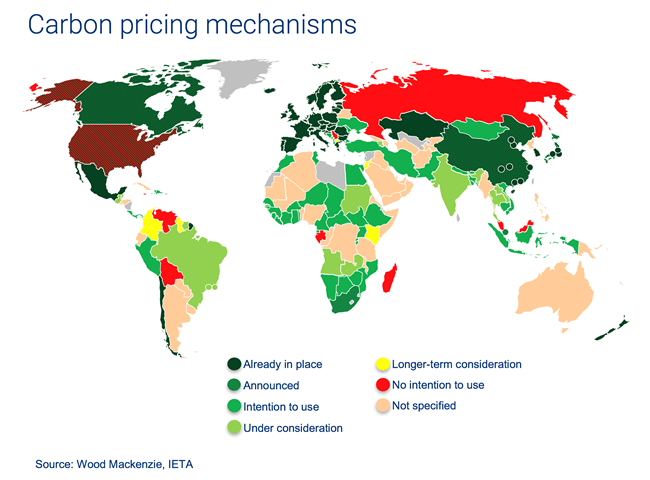Apart from those countries that already price or have announced plans to price carbon emissions, a further 78 indicated in their Intended Nationally Determined Contribution (INDC) submissions that they either planned to implement carbon pricing to achieve their Paris Agreement targets or would consider doing so.
Six others did not include carbon pricing in their INDC which covers the period to 2030 but said they would consider it in the longer term. One of those countries was Singapore, making the announcement of a carbon tax from 2019 all the more surprising.
Of course, not all countries that have pledged to price carbon in their INDCs may end up doing so. Hydrocarbon-dependent economies such as Russia, Venezuela, Saudi Arabia and the rest of the Middle East may require much longer to embrace carbon pricing — if ever.
Carbon pricing has also suffered some setbacks. China’s national cap-and-trade system and South Africa’s carbon tax, which were meant to be introduced at the start of 2017, have both been delayed to the latter half of the year. The outcome of the US presidential race has also called into question the country’s commitment to the Paris Agreement, with implications for the global climate change agenda.
Nonetheless, existing commitments are an indication that the world can expect the number of countries that place a price on carbon to multiply — and relatively rapidly if the intention is to have these mechanisms in place by 2020, when regulation under the Paris Agreement begins.
Singapore is only the first in what we believe will become a broader trend.

